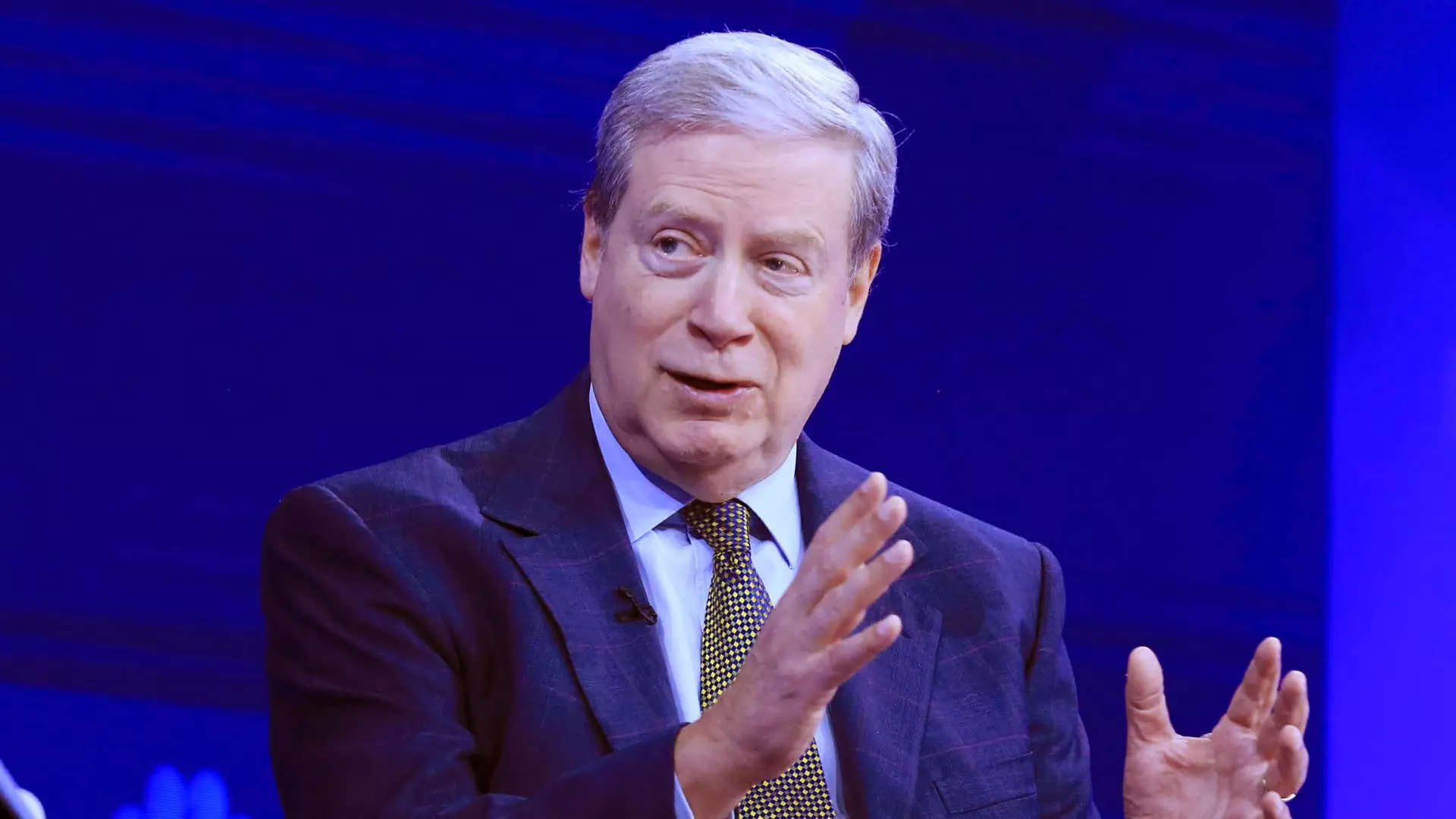The intersection of politics and finance has always been a fertile ground for debate and analysis, particularly when it comes to the impact of specific leadership on market sentiment. One prominent voice in the investment community, billionaire Stanley Druckenmiller, has recently commented on how Donald Trump’s re-election has invigorated market enthusiasm and optimism among business leaders. While his long-standing expertise compels attention, a deeper look reveals both the enthusiasm and the cautious perspective that define his outlook on the economy and markets.
A Shift in Business Sentiment
Druckenmiller’s assertion that the transition from “the most anti-business administration to the opposite” reflects a significant shift in business climate under Trump’s administration. The anecdotal evidence from conversations with CEOs who feel a mix of relief and exuberance suggests a palpable change in business confidence. This contrasts sharply with the previous administration’s regulatory scrutiny which many executives found stifling. Druckenmiller’s commentary highlights a critical dynamic in economics: the relationship between political policy and entrepreneur sentiment. When business leaders feel optimistic, it can lead to increased investment, hiring, and growth—elements crucial for a thriving economy.
However, this shifting sentiment should not lead to complacency. The underlying factors driving the “animal spirits” in the market, as Druckenmiller puts it, need continuous scrutiny. The markets are sensitive to changes not just in leadership but also in fiscal policies, labor costs, and international trade relations. Such nuances, if overlooked, could lead to a misinterpretation of the actual economic state.
Despite his bullishness regarding economic growth, Druckenmiller expresses caution concerning stock market valuations, primarily due to rising bond yields. In his view, there exists a nuanced tension between a thriving economy and the pressures of increasing interest rates. Such dynamics introduce complexities for investors aiming to decipher the true value of stocks in relation to potential bond price declines. This tension encapsulates a critical investment consideration: the balance between optimism rooted in economic growth and risks associated with changes in monetary policy.
Through his decision to maintain a short position on Treasurys, Druckenmiller implies a strategy aimed at capitalizing on anticipated spikes in bond yields. His perspective serves as a reminder that while optimism can prevail, it is vital for investors to remain anchored in reality and assess inherent market risks—especially in an environment where fiscal policies and economic indicators intersect unpredictably.
The Role of Specific Sectors in Economic Growth
One of Druckenmiller’s strategic focuses lies in specific sectors, particularly those maximizing the advancements in artificial intelligence (AI) to enhance productivity. His decision to sidestep high-profile tech stocks like Nvidia and Microsoft reflects a calculated approach to managing risk while seeking alternatives that could yield high rewards in a rapidly evolving technological landscape. This pivot reveals the ongoing evolution in which technology increasingly dictates market performance, reiterating that investors must adapt their strategies to embrace transformative trends.
Investors are urged to cultivate an inclination to closely monitor emerging industries that harness AI, as sectors that integrate these innovations are poised for significant growth. This focus on individual companies illustrates Druckenmiller’s strategy of precision—targeting specific assets rather than relying on broader market trends, which can often be unsteady.
Druckenmiller’s remarks regarding tariffs reveal another layer of complexity in market dynamics. He views tariffs not merely as a tool for protectionism but as a means of generating necessary revenue for the government. While there are concerns about retaliation from trading partners, he identifies a risk-reward equation that is tilted in favor of the domestic economy. This perspective suggests that markets may adjust to shifting trade policies with time, emphasizing the adaptability of economic systems.
Overall, while Druckenmiller’s insights provide a compelling narrative of cautious optimism in the light of political change, they also underscore the intricate interplay of numerous factors that shape the economy. By delving into individual sectors and remaining vigilant about broader economic signals, investors are better equipped to navigate the uncertain waters of market fluctuations influenced by political and economic realities. Ultimately, a comprehensive understanding of these dynamics will differentiate successful investors from the rest in an ever-evolving landscape.

